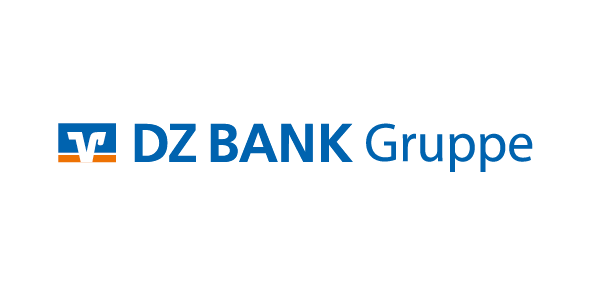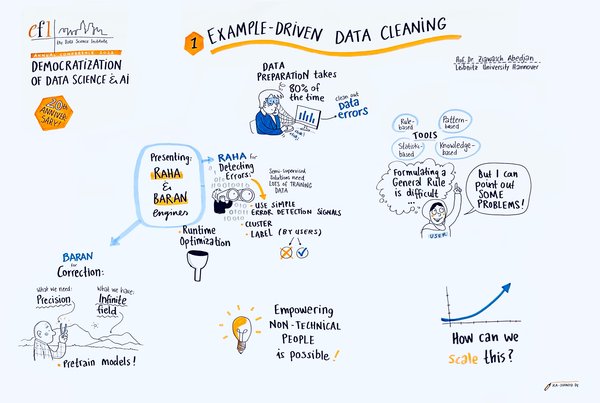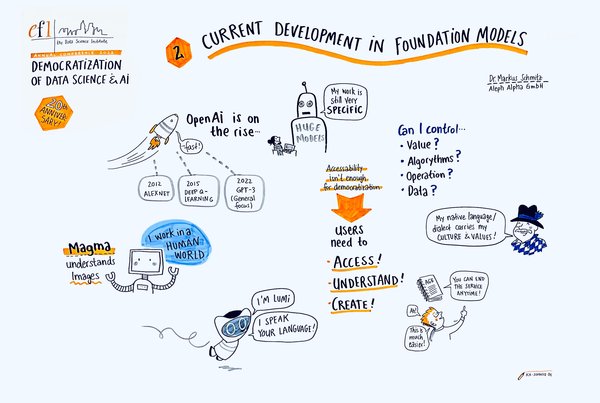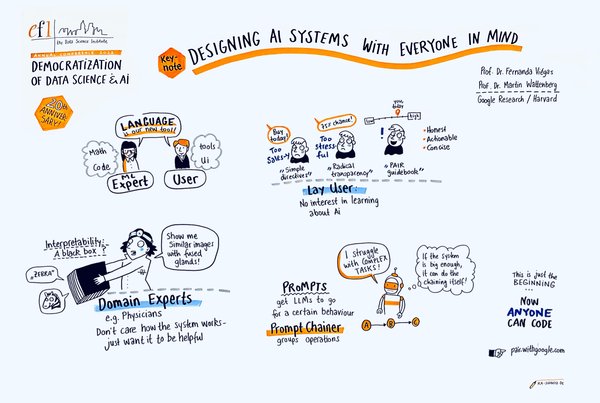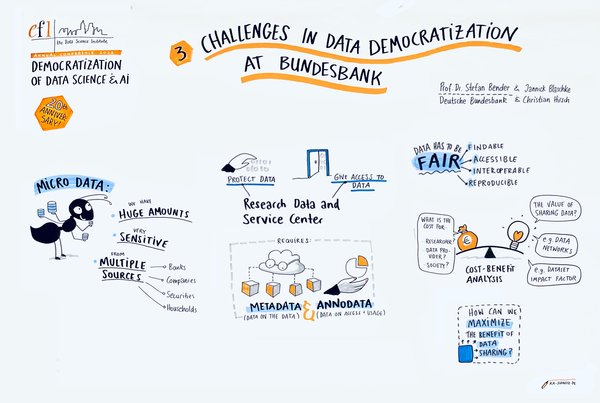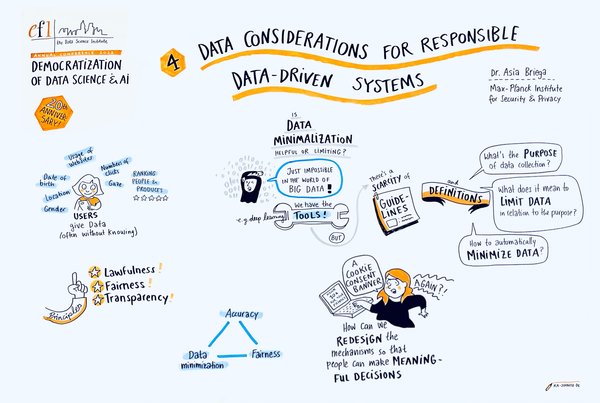Thank you for attending our 2022 Annual Conference
Thanks to all speakers and attendees of the efl Annual Conference 2022. We would like to express our heartfelt thanks to each and every one of you who participated at the efl Annual Conference 2022.
The talks were centered around important topics in data democratization such as data cleaning, the role of language models, challenges at Deutsche Bundesbank and responsible data systems. A special thanks goes to our keynote speakers who spoke about designing AI systems with everyone in mind. There were many insightful talks and discussions making the efl Annual Conference 2022 a success. It was a great pleasure to welcome so many of you finally in person again!
The efl Annual Conference 2022 truly would not be possible without the support of so many partners. We would like to thank our sponsors, who made this event possible and for their confidence in our work!
We are looking forward to seeing you again next year. We plan to soon upload the talks online. Please stay tuned. In the meantime you can still download the conference program below and find some impressions of the conference.
Recordings
All talks of the 2022 efl annual conference were recorded and remain available to participants and others who are interested alike.
The recordings can be accessed via the Data and AI literacy Hub.
The Graphic Recordings were done live by Ka Shmitz https://ka-schmitz.de/.
Impressions of the Conference

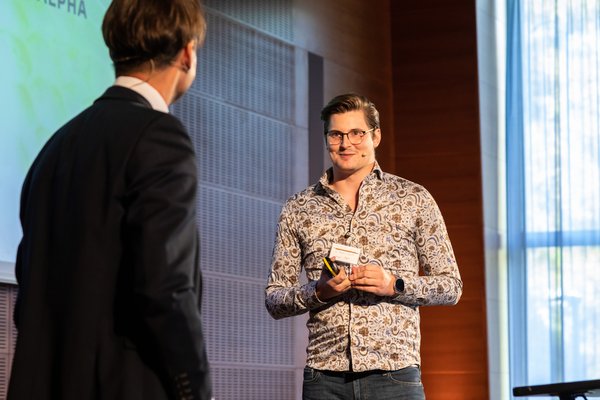
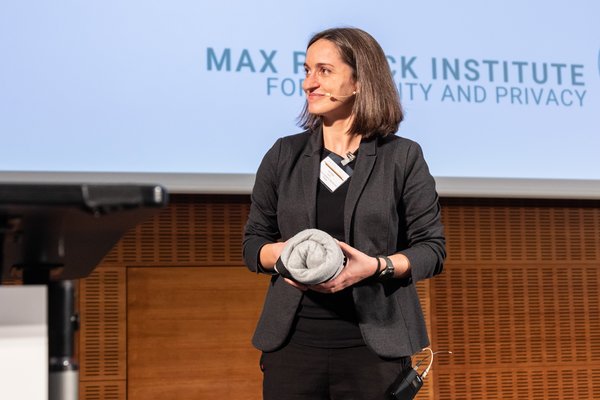
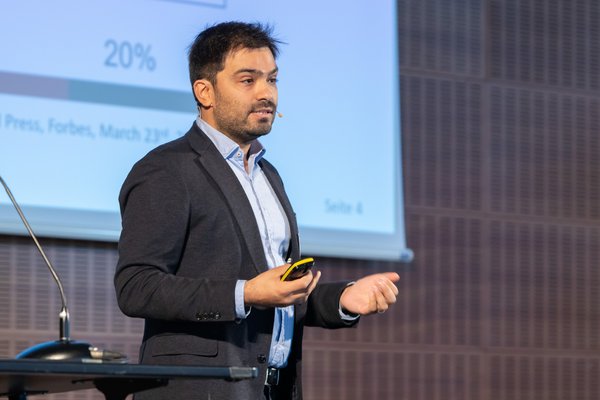
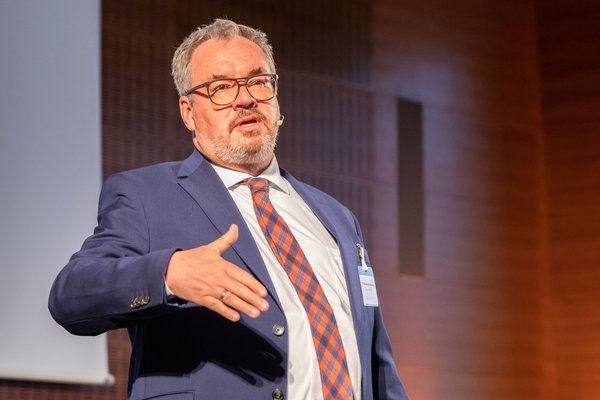
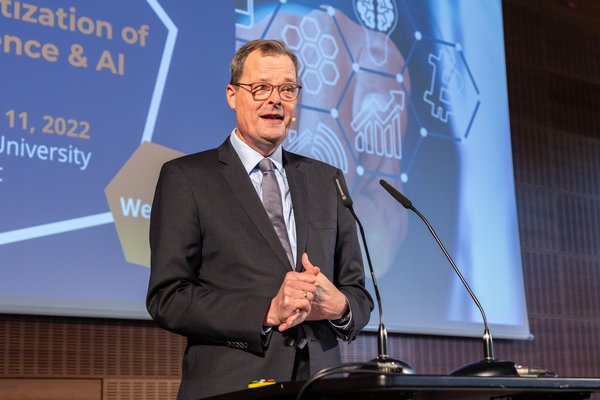
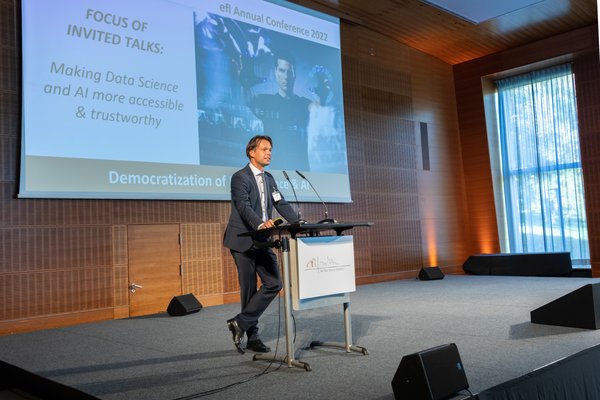
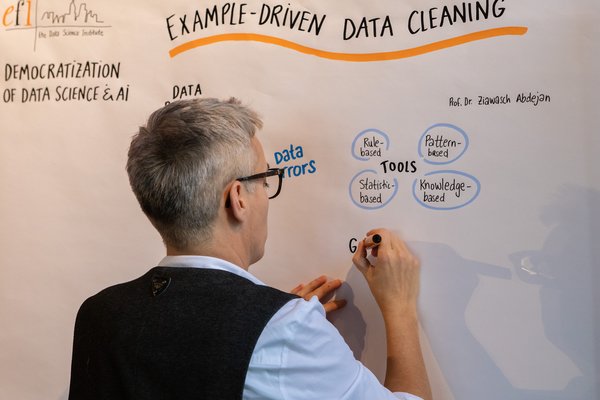
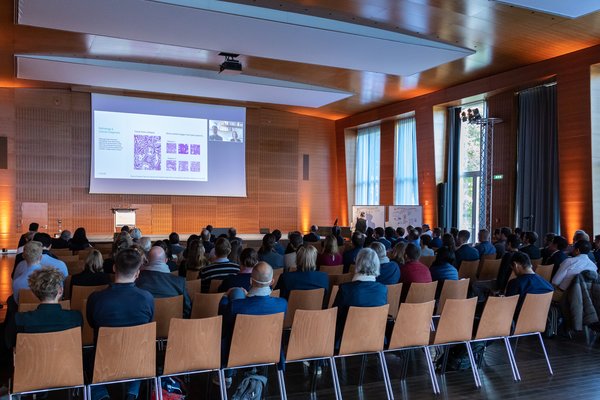
Program
14:30 REGISTRATION & COFFEE
15:00 WELCOME
Prof. Dr. Carsten Binnig, TU Darmstadt
Prof. Dr. Oliver Hinz, Goethe University Frankfurt
15:10 EXAMPLE-DRIVEN DATA CLEANING
Prof. Dr. Ziawasch Abedjan, Research Director, Leibniz University Hannover and Visiting Academic at Amazon
15:40 CURRENT DEVELOPMENTS IN FOUNDATION MODELS (LLMs) AND HOW THIS RELATES TO AI DEMOCRATIZING EFFORTS
Dr. Markus Schmitz, AI Consulting, Aleph Alpha GmbH
16:10 KEYNOTE: DESIGNING AI SYSTEMS WITH EVERYONE IN MIND
Fernanda Viégas, Principal Scientist, Google Research, Gordon McKay Professor, Harvard University
Martin Wattenberg, Principal Scientist, Google Research, Gordon McKay Professor, Harvard University
16:50 LAUDATIO: 20 YEARS EFL
Prof. Dr. Joachim Würmeling, Chairman of the Board of Trustees, Deutsche Bundesbank
17:10 REFRESHMENT BREAK
17:40 CHALLENGES IN DATA DEMOCRATIZATION AT BUNDESBANK
Stefan Bender, Head of Research Data and Service Center, Deutsche Bundesbank
18:10 DATA CONSIDERATIONS FOR RESPONSIBLE DATA-DRIVEN SYSTEMS
Dr. Asia Biega, Max Planck Institute for Security and Privacy (MPI-SP)
18:40 GET TOGETHER
All times in CEST.
Our Speakers

Ziawasch Abedjan
Ziawasch Abedjan is Professor for “Databases and Information Systems” at Leibniz Universität Hannover and Visiting Academic at Amazon Search. He is Junior Fellow of the German Computer Science Society, Fellow of the Berlin institute on Foundation of Learning and Data and member of the L3S Research Center. He has published more than 50 peer-reviewed papers in the area of data integration and data analytics. Ziawasch Abedjan received his PhD at the Hasso-Plattner-Institute in Potsdam and received the best dissertation award of the University of Potsdam in 2014. After his PhD, he was a postdoctoral associate at MIT and Junior Professor at the TU Berlin. He is further recipient of the SIGMOD 2019 most reproducible paper award, SIGMOD 2015 best demonstration award, and CIKM 2014 best student paper award. His research is funded by the DFG and the German Ministry of Research and Education.
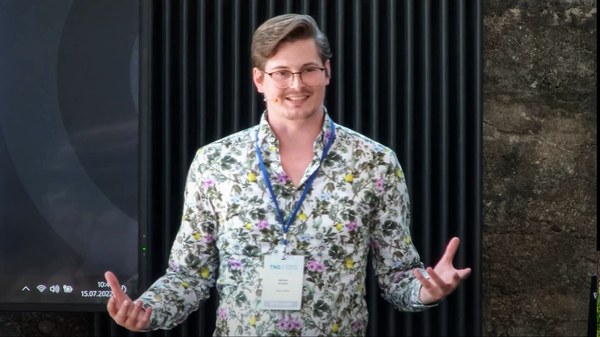
Markus Schmitz
Markus Schmitz is a consultant at Aleph Alpha in Heidelberg and Guest Lecturer at the University of Erlangen-Nuremberg. Schmitz recieved his PhD in Information Systems from the University of Erlangen-Nuremberg working on the Design and Integration of Machine Learning in Information Systems. Working for BMW as an AI expert and AI Advocate, he worked on designing, implementing, and communicating Computer Vision and Reinforcement Learning Systems. He joined Aleph Alpha in 2022 to enable others in using the next generation of AI. His main areas of focus are AI Enablement, Innovative Problem Solving with Large Language Models, and AI Use Case Architectures.
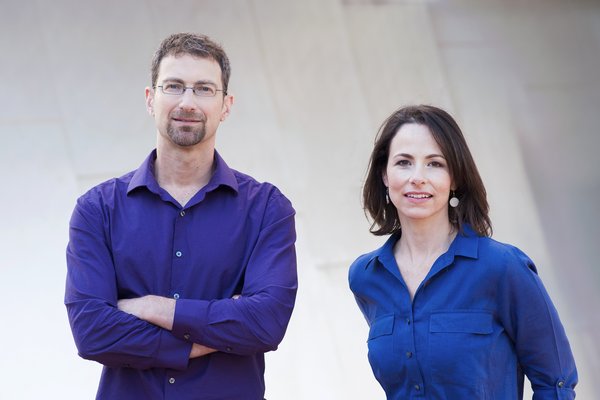
Fernanda Viegas & Martin Wattenberg
Fernanda Viégas and Martin Wattenberg are Principal Scientists at Google, where they co-lead the PAIR (People+AI Research) initiative. Viégas and Wattenberg are also Gordon McKay Professors of Computer Science at Harvard, where Fernanda is also Sally Starling Seaver Professor at the Radcliffe Institute for Advanced Study. Their work in machine learning focuses on transparency and interpretability, as part of a broad agenda to improve human/AI interaction. They are well known for their contributions to social and collaborative visualization, and the systems they’ve created are used daily by millions of people. Viégas and Wattenberg are also known for visualization-based artwork, which has been exhibited in venues such as the Museum of Modern Art in New York, London Institute of Contemporary Arts and the Whitney Museum of American Art. Their artwork has influenced contemporary design practice: for instance, the techniques in their wind map are now used by major media companies around the world to display the weather.

Stefan Bender
Stefan Bender is Head of the Data and Service Center of the Deutsche Bundesbank and – since 2018 - Honorary Professor at the School of Social Sciences, University Mannheim. With his position at Deutsche Bundesbank he is chair of INEXDA (the Granular Data Network) and member of the German Data Forum (https://www.konsortswd.de/en/). Before joining the Deutsche Bundesbank Bender was head of the Research Data Center (RDC) of the Federal Employment Agency at the Institute for Employment Research (IAB), which he has interna-tional established a research data centre including access to IAB data in the US (for example Berkeley, Harvard). His research interests are data access, data quality, merging administra-tive, survey data and/or big data, record linkage and establishment data. He has published over 100 articles in journals including the American Economic Review or the Quarterly Journal of Economics. For more details: https://www.bundesbank.de/en/bundesbank/research/rdsc/staff-members/stefan-bender-604504

Asia Biega
Asia J. Biega is a tenure-track faculty member at the Max Planck Institute for Security and Privacy (MPI-SP) leading the Responsible Computing group. Her research centers around developing, examining and computationally operationalizing principles of responsible computing, data governance & ethics, and digital well-being. Before joining MPI-SP, Asia worked at Microsoft Research Montréal in the Fairness, Accountability, Transparency, and Ethics in AI (FATE) Group. She completed her PhD in Computer Science at the MPI for Informatics and the MPI for Software Systems, winning the DBIS Dissertation Award of the German Informatics Society. In her work, Asia engages in interdisciplinary collaborations while drawing from her traditional CS education and her industry experience including stints at Microsoft and Google.
Sponsors

